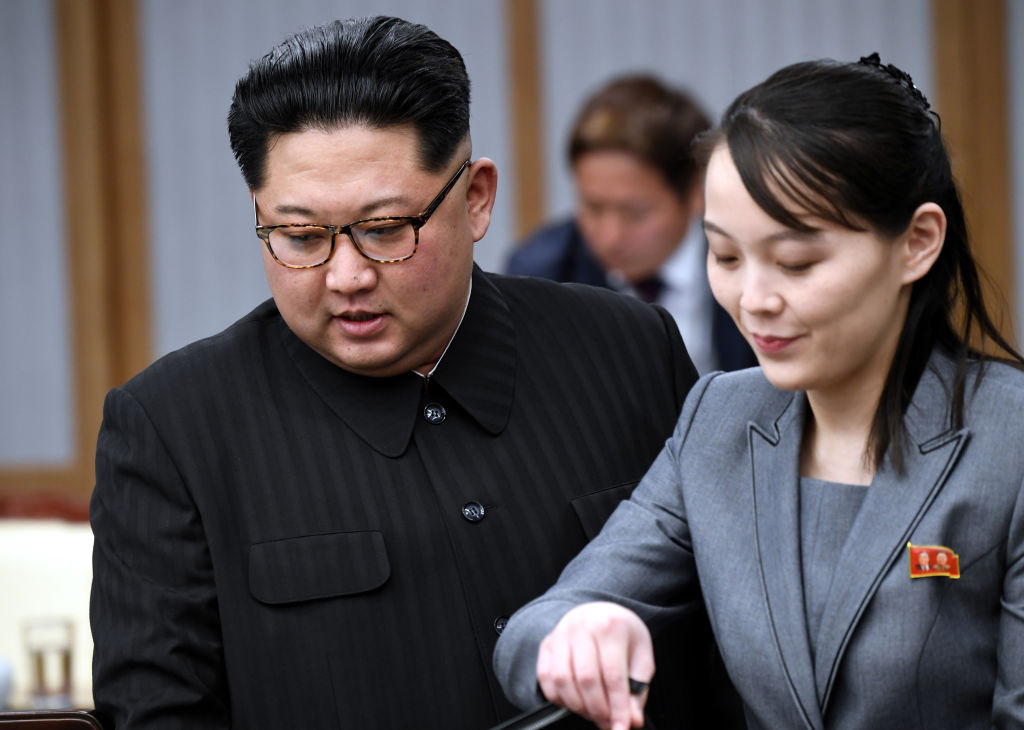
Winston Churchill once famously described the Soviet Union as ‘a riddle wrapped in a mystery inside an enigma’. Much the same can be said of today’s North Korea, whose leaders are shrouded in mystery and go to extraordinary lengths to manage the trickle of information about them that reaches the outside world.
When supreme leader Kim Jong-il died in 2011, he bypassed several elder sons to hand the baton of power to his youngest son. Little was known about Kim Jong-un, not even his precise age. A decade later, information about him is still in short supply. We know that he’s married and has three children, but their ages are uncertain and only his wife and young daughter have been seen in public.
When Kim Jong-un visited Singapore in 2018 to meet with US President Donald Trump, security was exceptionally tight. Unofficial photographs of Kim were discouraged, and some photographers were forced by hotel staff to delete their pictures. The North Korean delegation was careful not to leave detritus behind that might give foreign agents clues to their leader’s health.
Since Kim Jong-un came to power, his sister Kim Yo-jong, three years his junior, has emerged as his most trusted aide and the government’s most vitriolic spokesperson. Formally, she is among the country’s 40 top leaders, but with direct access to her brother many consider her the second most powerful person in the country. Kim Yo-jong is assumed to be married, with one or two children, but aside from her public appearances, little is known about her.
In this information vacuum, Sung-Yoon Lee’s The sister: the extraordinary story of Kim Yo Jong, the most powerful woman in North Korea is a welcome addition to our knowledge of the ‘hermit kingdom’. Lee is a fellow at the Woodrow Wilson International Center for Scholars and has taught Korean history and politics at the Fletcher School at Tufts University.
Lee describes North Korea as the world’s only ‘hereditary totalitarian kingdom’. The ‘great leader’, Kim Il-sung, had six children with three different women. His eldest son and chosen successor, Kim Jong-il, had seven children with four different women and, in turn, chose the youngest son of his favourite consort to succeed him. Lee’s account of the power play inside the Kim clan’s innermost circle reads like an episode from the popular TV series Game of Thrones, including sibling rivalry, competition among consorts, betrayals, disappearances and brutal executions.
Preserving the family bloodline is essential for the dynasty to survive. To that end, Kim Jong-il carefully groomed the two children whom he considered to have the most leadership potential, Kim Jong-un and Kim Yo-jong.
Following several years at school in Switzerland, in their teens and early twenties the siblings accompanied their father to official meetings, where they were steeped in the minutiae of North Korea’s negotiating tactics. These include using missile tests for economic and political gain and taking advantage of hostage situations. The siblings were taught to set the tone of discussions from the start, to squeeze the other party for concessions while conceding nothing, and to alternate between flattery and threats. Above all, they learned to seize the initiative and remain in control.
Kim Yo-jong has risen rapidly through the North Korean bureaucracy. When former US president Bill Clinton visited North Korea in 2009 to negotiate the release of two American hostages, his program was stage-managed by Kim Yo-jong, at the time just 22. Since 2014, she has served as the de facto head of the powerful Propaganda and Agitation Department.
Kim Yo-jong’s real coming out, however, took place in 2018, when she represented her brother at the South Korean Winter Olympics and stole the limelight from the American delegation led by Vice President Mike Pence.
Initially, Kim Yo-jong was seen as playing ‘good cop’ to her brother’s ‘bad cop’, but more recently the roles have been reversed, with the sister serving as an outspoken critic of South Korea, the US and Japan. As Lee describes it, her brother is the face of the nation, but Kim Yo-jong is the chief censor and enforcer.
Lee provides detailed accounts of the negotiations leading up to Kim Yo-jong’s attendance at the Pyeongchang Olympics, Kim Jong-un’s subsequent summit meetings with Trump in Singapore in 2018 and Hanoi in 2019, and the role played by national security adviser John Bolton in scuttling the latter. These in themselves make The sister essential reading for North Korea watchers.
More important than Kim Yo-jong’s formal position, though, is the fact that she’s the granddaughter of North Korea’s founder, Kim Il-sung, the daughter of his successor, Kim Jong-il, and the sister of the country’s current leader. She thus has a direct claim to the ‘Mount Paektu bloodline’, a reference to the sacred mountain where, according to North Korean legend, her forebears were born, making her full-fledged ‘royalty’.
North Korea is a highly paternalistic society, but Lee doesn’t rule out the possibility that Kim Yo-jong could, given time, succeed her brother. As long as she remains in favour, in a power transition she would almost certainly play a key role as a caretaker and kingmaker.

